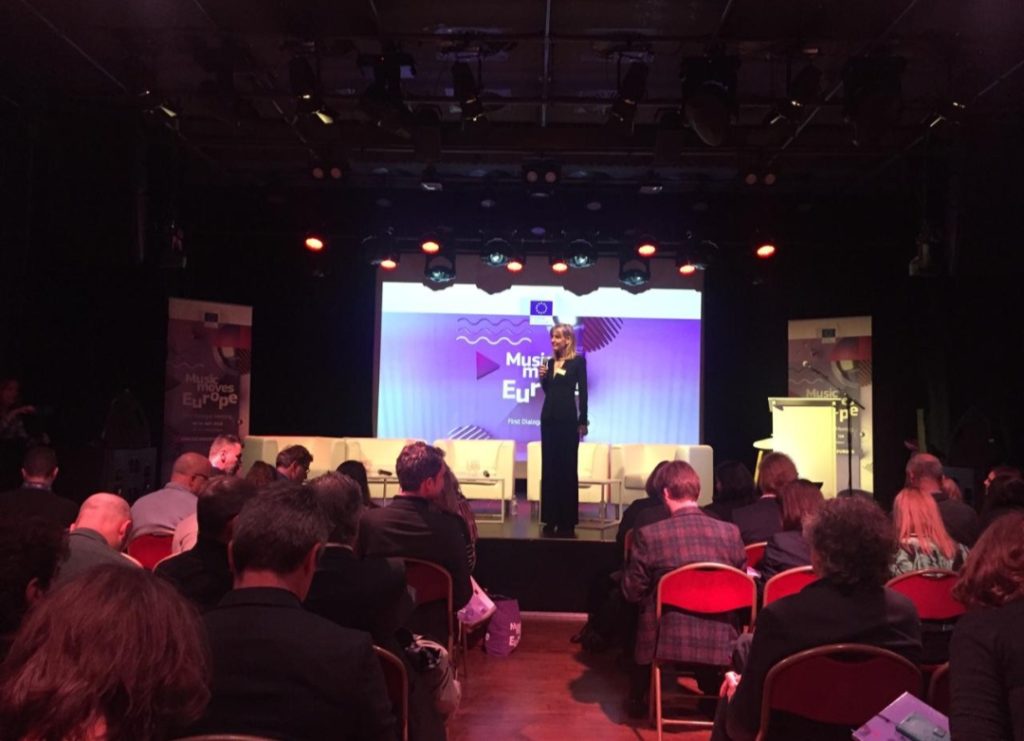20th & 21st of May 2019, Ancienne Belgique, Brussels



[button url=”https://ec.europa.eu/programmes/creative-europe/sites/default/files/library/mme-conference-report-web.pdf” target=”_blank »]Read the Final Report of the Structured Dialogue – 20th & 21st May, 2019[/button]
Together with 100 representatives from the European music sector, Live DMA participated at the dialogue with the European Commission about Music Moves Europe. Tamás Szucs, new director of DG EAC, opened this two days session by directing the dialogue towards a diverse, sustainable and competitive music ecosystem for Europe.
The two days meetings were rhythmed by two small group discussions about the future of music media and about live music, as well as by two panels that aimed to explain the guarantee facility, and the implementation of the Copyright Directive.
The EU guarantee facility
The EU guarantee facility provides loans for small and medium sized organisations to invest in equipment, but also manages capacity building workshops to teach the financial sector how to see the creative sector as a reliable one. For now, 20 music projects on sound recording and music publishing were financed through the guarantee facility in Spain, France, Czech Republic and Belgium where agreements with financial intermediaries have been established.
The Copyright Directive
The Copyright Directive implementation is now starting in the member states. The goal is not to reopen negotiations at national level. It will be a compliance exercise for YouTube and a responsibility for collecting societies to now leverage agreements with the platforms.
Group discussion on the future of live music and music media
The small group sessions led to rich discussions among the participants and helped to better understand the subsectors’ challenges. The objective was to tackle trends, risks and opportunities related to music diversity.
The most important topics mentioned during these sessions ranged from algorithms transparency, systems of recommendations and new music curators, audience practices and patterns, trainings about digital and entrepreneurial skills to concentration, secondary ticketing, urban densification and gentrification, dialogue with local authorities, new generations, new live music formats, and positive social impact. Climate change was mentioned several times as the representatives are aware and wish to see more investment in the music sector’s transition.
Most of the participants’ inputs come from empirical assumptions and will need to be research based for future policy development.
The EU Commissioner Tibor Navracsics concluded the meeting affirming that the dialogue would remain open. Next stop for the structured dialogue between the sector and the European Commission will be at Reeperbahn Festival in Hamburg this autumn.
© Photos: Creative Europe
